Technical Committee 11: Health
Imaging, Sensing, Medicine, Health, Services
Roles
The roles of the AP-S TC on Health & Medicine are to advance the application of electromagnetic techniques and technologies in healthcare and medical sciences. This includes fostering innovation in imaging and sensing systems, promoting interdisciplinary collaboration between engineers, medical professionals, and researchers, and addressing societal challenges through technology-driven healthcare solutions. The TC aims to identify emerging trends and gaps in the application of electromagnetics in medicine, provide a platform for knowledge exchange, and support the development of standards and guidelines for medical electromagnetic devices and systems. Special emphasis is placed on supporting sustainable, affordable, and accessible healthcare solutions globally.
Scope
- Electromagnetic imaging for diagnostics.
- Non-invasive sensing and monitoring.
- Wearable and implantable antennas/devices.
- Wireless Bioelectronics.
- Microwave and millimeter-wave health technologies.
- Electromagnetic solutions for therapy.
- RF and photonic integration for sensing.
- Bioelectromagnetic interactions.
- Emerging technologies in health data communication and processing.
- Telemedicine and remote healthcare.
- Safety and compatibility in medical systems.
Events
- July
TC-11 is co-organizing a Special Session “Emerging Technologies for Biomedical Applications at the 2025 IEEE AP-S/URSI Symposium in Ottawa, Canada.
Session Co-Chair(s): Dr. Sema Dumanli. - August
Dr. Wenxuan Tang is co-organizing a Special Session “Characterization and Emerging Applications of Electromagnetic Materials and Metamaterials" at the 18th IEEE United Conference on Millimeter Waves and Terahertz Technologies (UCMMT2025) in Nanjing, China.
- September
-
Dr. Hendrik Rogier is giving a short course “Wearable Antenna Systems for Joint BodyCentric Communication, Powering and Sensing” on September 21st during the 2025 European Microwave Week in Netherlands.

-
The IEEE MTT-S UMKC Student Branch Chapter officially kicked off with an inspiring keynote by Dr. Ifana Mahbub, MTT Regional Coordinator (Region 5), followed by an engaging interactive quiz that energized around 25 enthusiastic students on Sep. 22.




-
- October
-
Dr. Sima Noghanian submitted an idea of using bio-friendly materials for antenna fabrication to the IEEE Innovation Summit. The idea was selected, and an invitation to attend the IEEE Innovation Summit on October 5-6 in Alexandria, Scotland, was received. Prof. Qammer Abbasi, on behalf of Sima, attended the meeting. He was joined by a group of innovators from across IEEE to explore and refine the ideas that align with the strategic goals of IEEE Innovation and Public Imperatives. To know more about the summit, visit: https://techsummit.ieee.org/cleantech-2025/
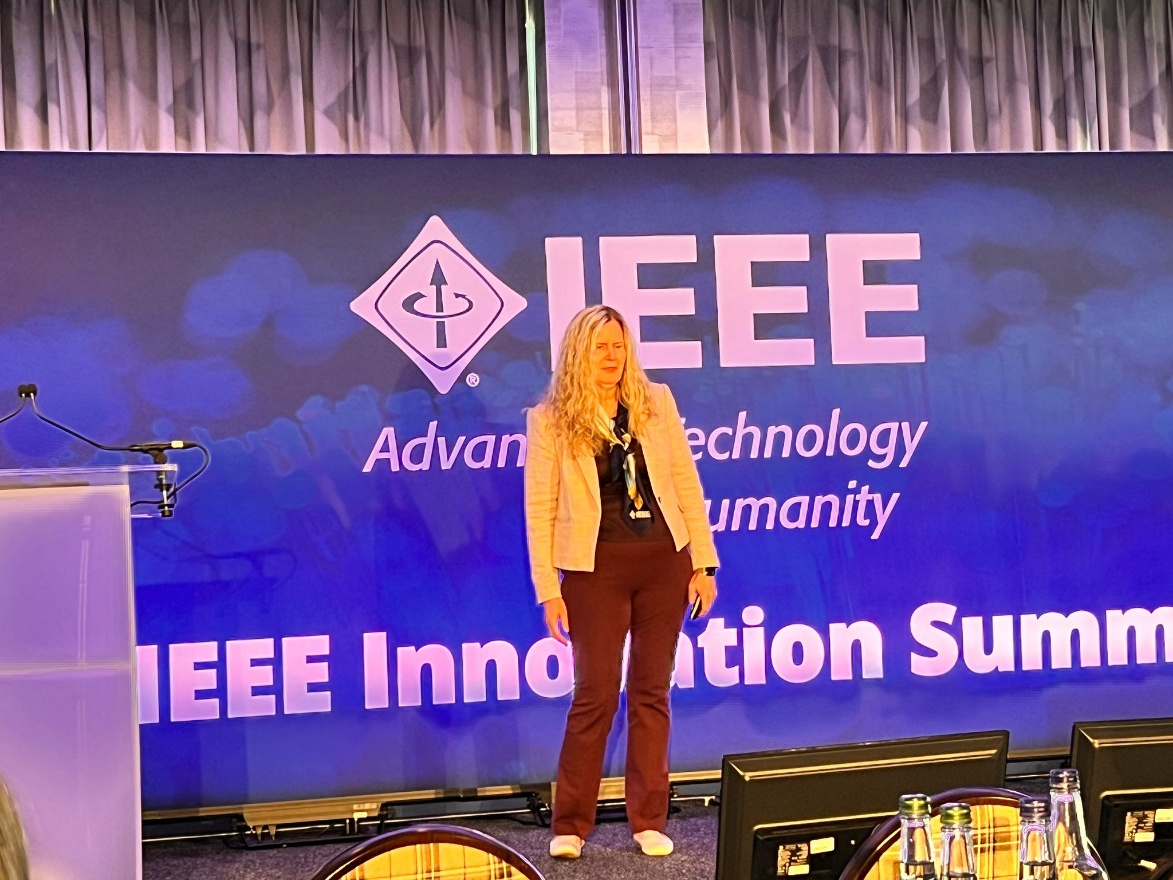

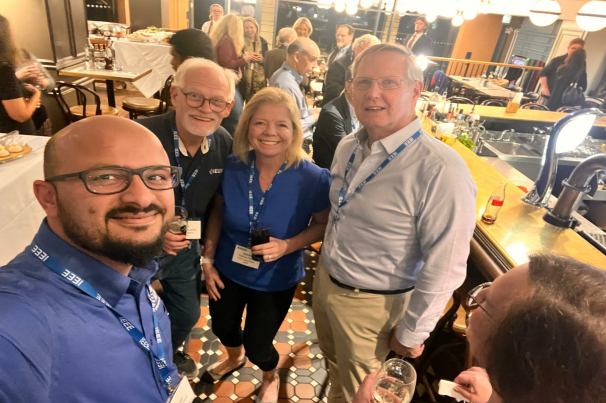
-
Dr. Qammer Abbasi from TC 11 is attending the IEEE Technology Summit 2025 IEEE Technology Summit 2025
- Dr. Qammer Abbasi delivered a talk at 2025 IEEE AP-S/MTT-S Distinguished Instructors Workshop on 24th October.
-
Dr. Akram Alomainy and Dr. Qammer H. Abbasi delivered keynote talks at the International Conference on Future Telecommunications and Artificial Intelligence (IC-FTAI’2025), held on 24-26 November 2025 in Alexandria. The conference was organised by the IEEE Egypt AP-S/MTT-S Joint Chapter and brought together researchers working across telecommunications, electromagnetics, and artificial intelligence. Dr. Alomainy presented a keynote titled “Resilient, Scalable and Flexible Wearable & EM Technologies for Next Generation Healthcare”, highlighting recent advances in wearable and body-centric electromagnetic systems for future healthcare applications. Prof Abbasi delivered a keynote entitled “Surfaces that can Act as Mirrors for Electromagnetic Waves”, focusing on intelligent and reconfigurable electromagnetic surfaces and their potential impact on next-generation wireless systems.
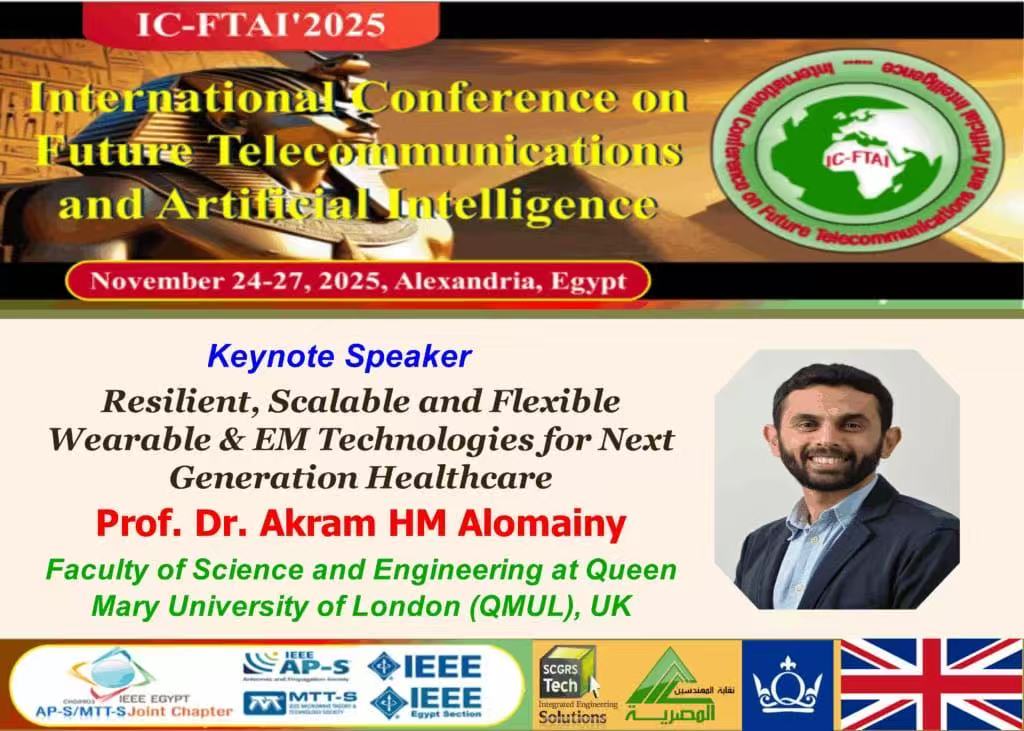
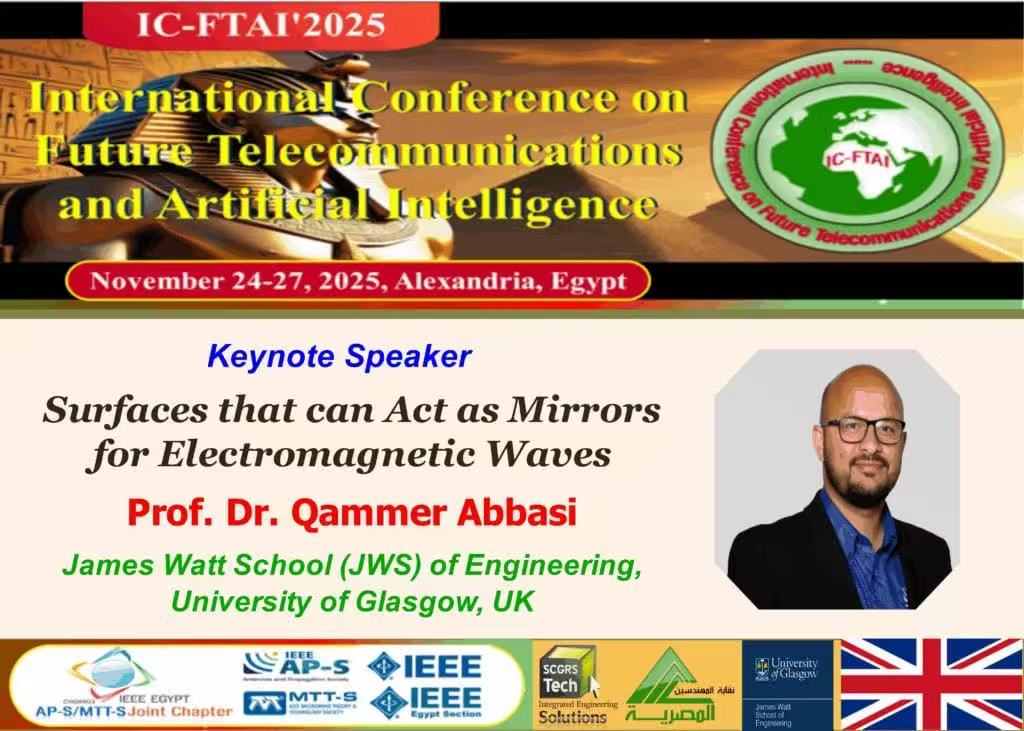
-
- December
- TC-11 is co-organizing a Special Session “Advances in Antennas and Sensors for Health and Medical Applications” at the IEEE Microwaves, Antennas, and Propagation Conference (MAPCON 2025), Kochi, Kerala, India.
Session Organizer: Dr. Sima Noghanian. - Dr. Hendrik Rogier is giving a keynote talk “mmWave-over-Fiber Distributed Antenna Systems for Next-Generation Wireless Applications” at MAPCON 2025.
-
Dr. Qammer H. Abbasi and Dr. Nosherwan Shoaib are organizing a Workshop & Panel Discussion “Recent Advancements in Imaging and Integrated Sensing” on 15 December in Islamabad Pakistan. The workshop served as a focused platform for researchers, industry professionals, and students to explore state-of-the-art developments in modern imaging and sensing technologies. The activity featured expert panel discussions on emerging trends such as advanced sensor integration, imaging systems for healthcare and smart environments, and cross-disciplinary applications in IoT and intelligent systems. The workshop enhanced participants’ technical understanding, fostered knowledge exchange between academia and industry, and encouraged collaborative research initiatives. Its impact was reflected in increased awareness of cutting-edge technologies, capacity building among early-career researchers and students, and the promotion of innovative, application-oriented research aligned with future technological and societal needs.
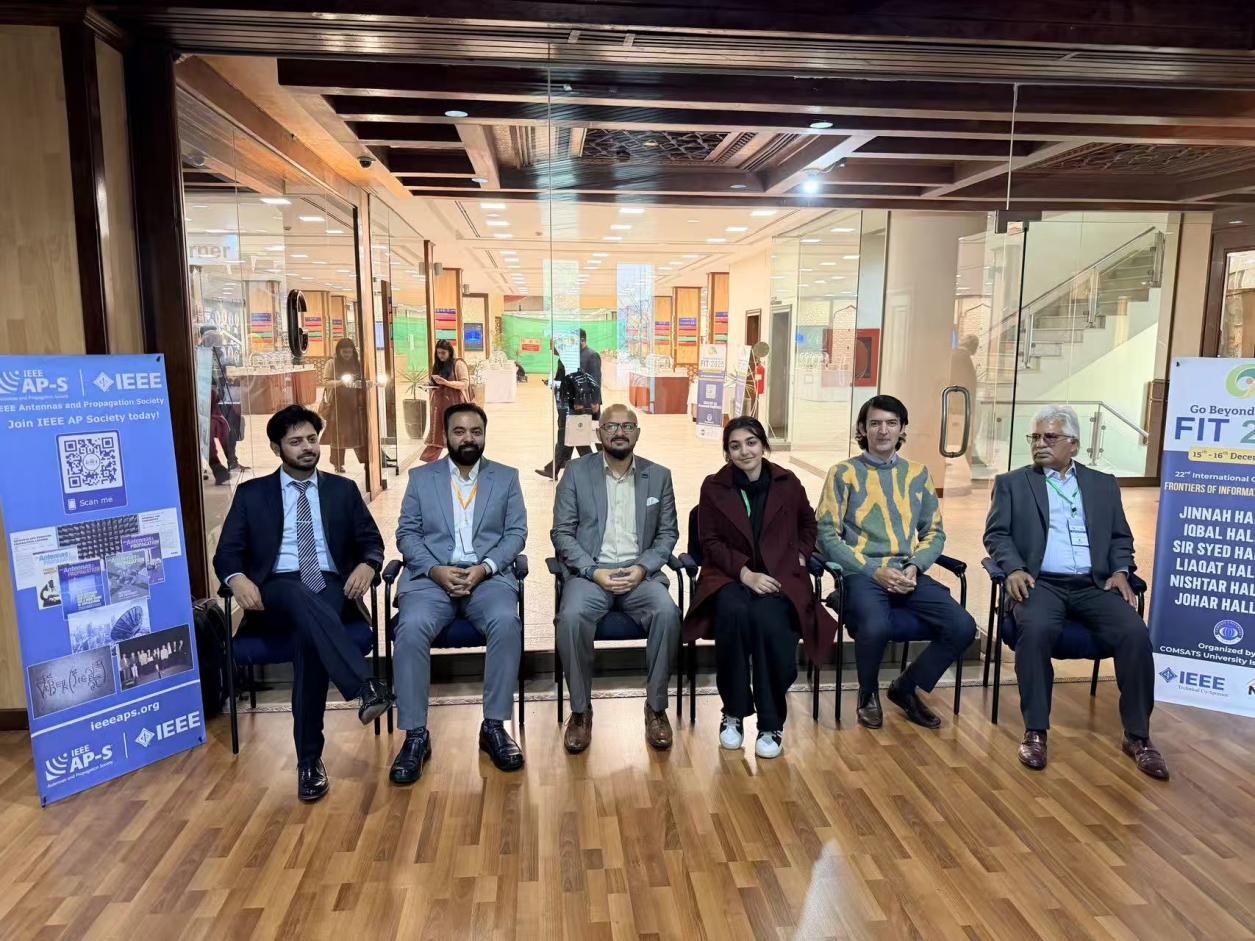
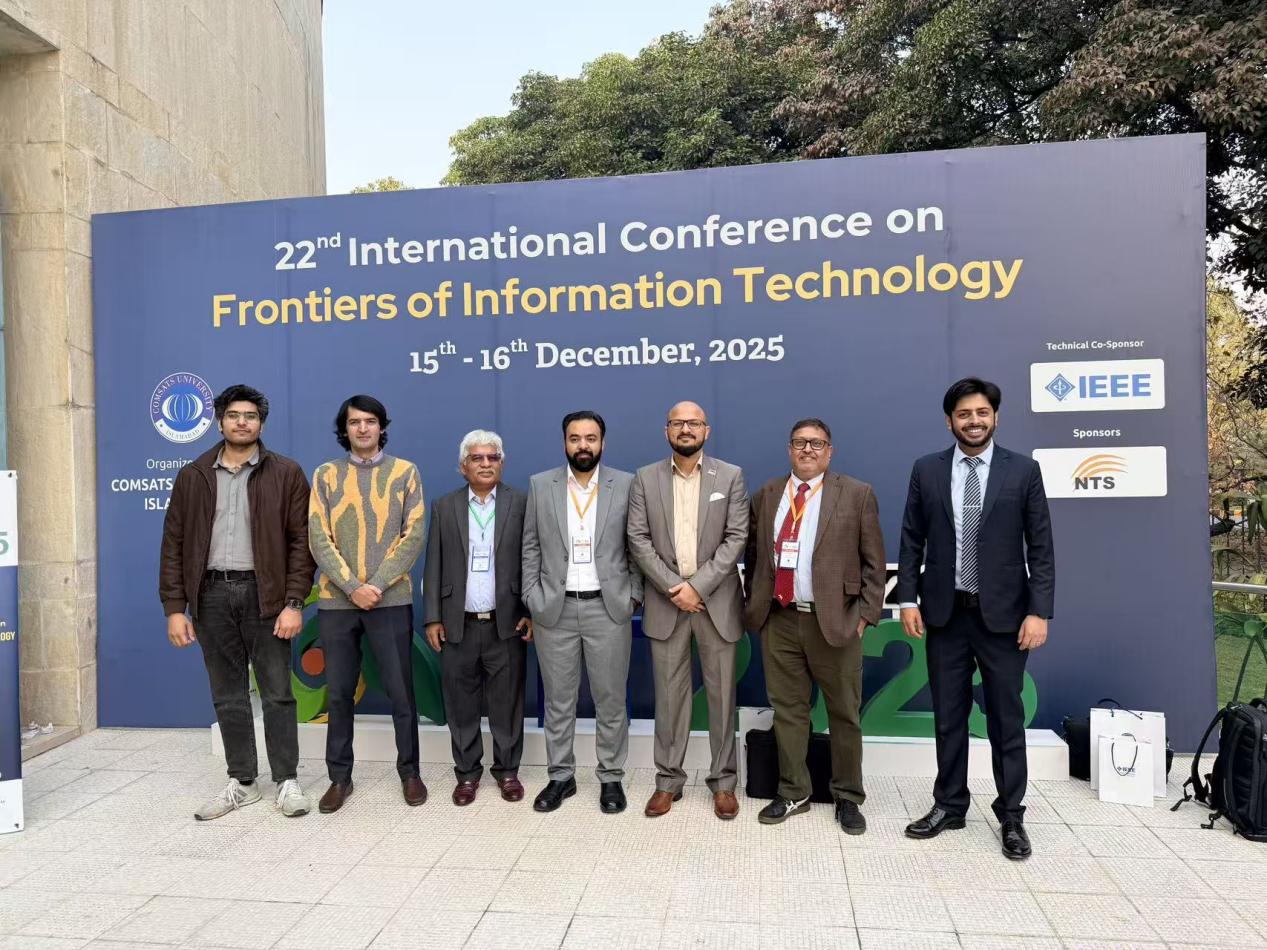
-
IEEE AP-S Technical Committee on Health and Medicine and IEEE AP/MTT/EMC/ED Turkey Joint Chapter held a TOPICAL WORKSHOP ON ELECTROMAGNETICS IN HEALTH AND MEDICINE on 22nd December.
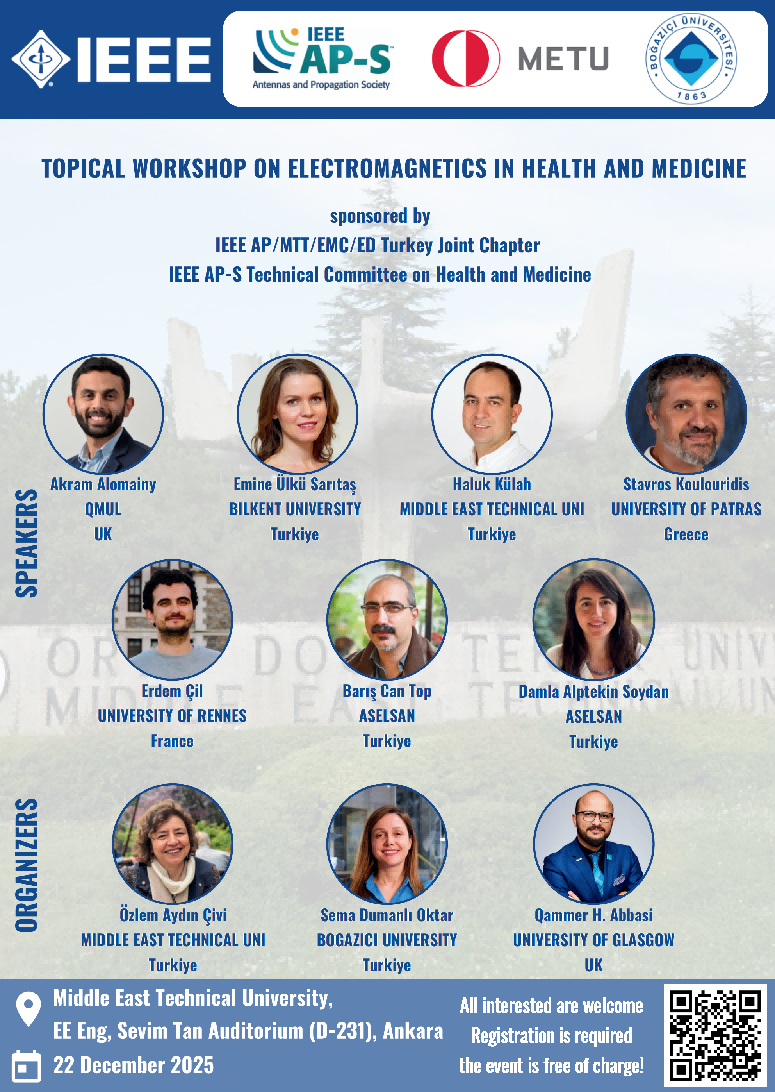
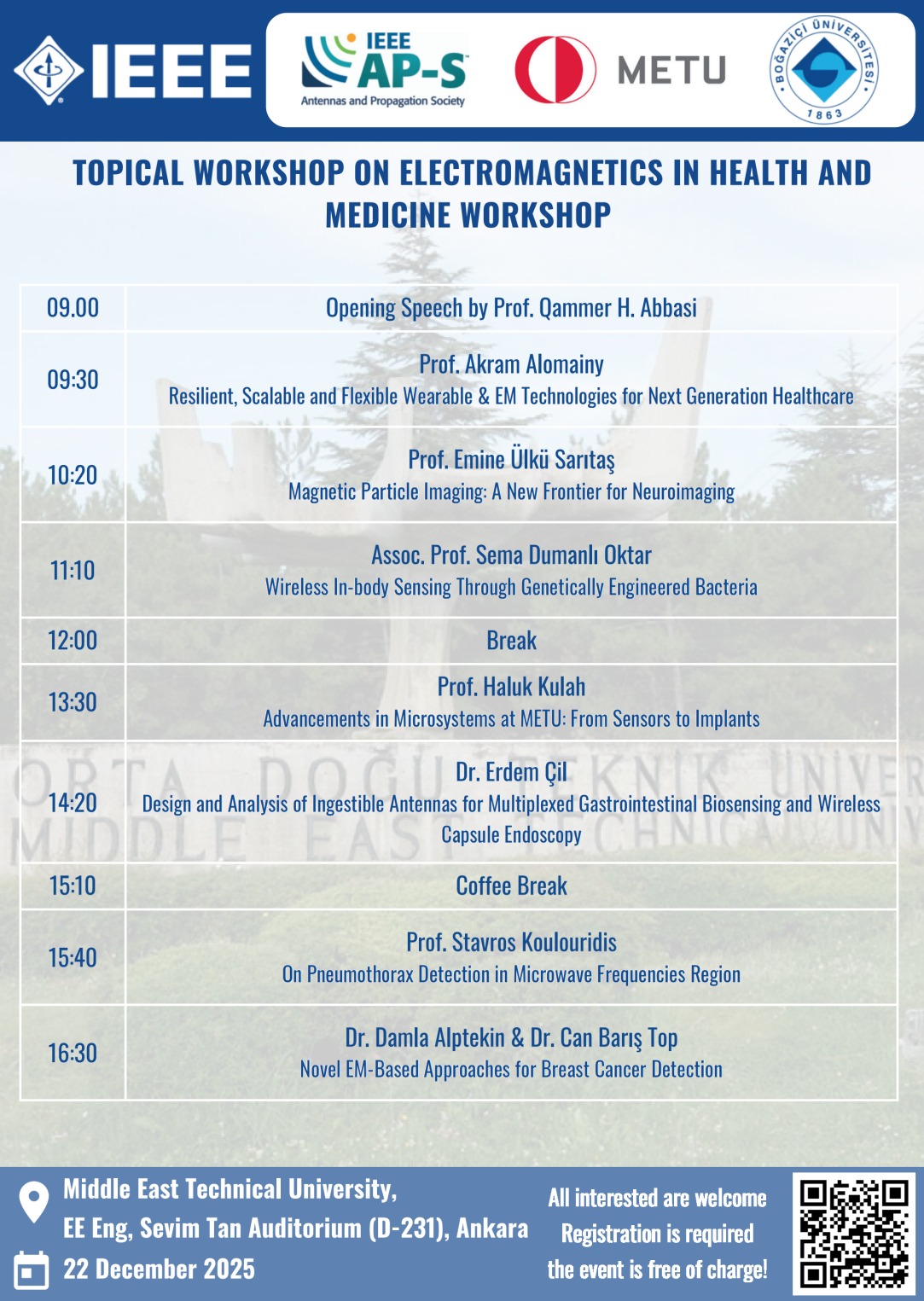
-
Dr. Akram Alomainy, who is the vice chair of TC11, delivered an invited talk at IEEE MAPCON 2025, held in Kochi. His invited presentation, titled “Resilient, Scalable and Flexible Wearable & EM Technologies for Next Generation Healthcare”, highlighted recent advances in wearable electromagnetic technologies and their role in future healthcare applications. In addition to his invited talk, Dr. Alomainy also served as a Session Chair on Thursday 18 December at the same conference. He chaired the technical session “Novel Microwave Solutions for Biology and Medicine”, which focused on emerging microwave and RF technologies for biomedical and healthcare applications.
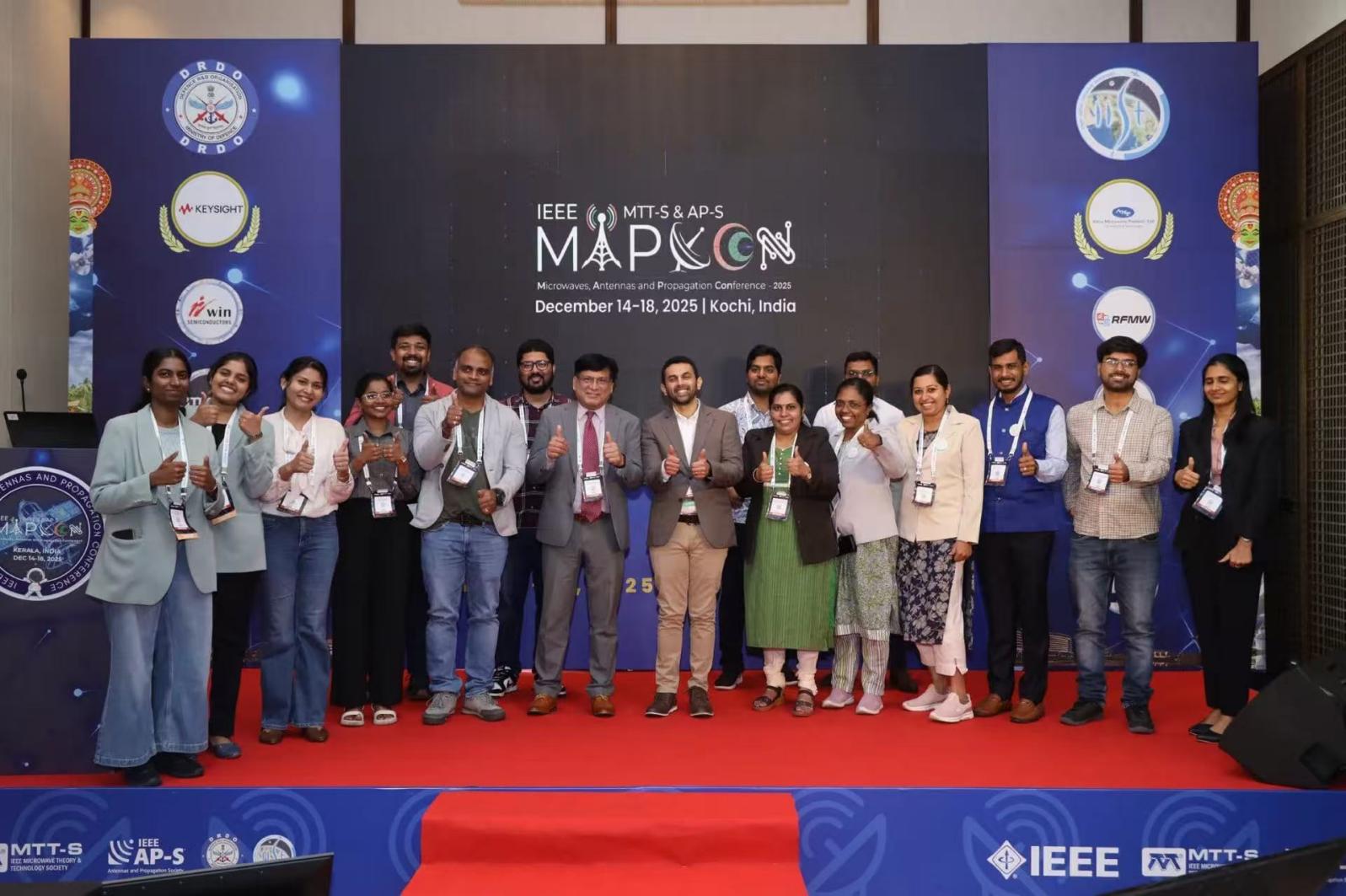
-
Dr. Akram Alomainy co-organised and led the European School of Antennas (ESoA) course on Body-Centric Wireless Communication: From Devices, Systems to Applications (Body-scale to Nano), hosted by Queen Mary University of London in London. The intensive week-long course formed part of the European School of Antennas programme and brought together leading international researchers and practitioners in body-centric and wearable wireless technologies. The course covered a wide range of topics including body-centric antennas and propagation, measurement and modelling techniques, wearable and implantable systems, and emerging mm-wave, THz and nano-scale communications. Through lectures and technical discussions, the programme provided participants with both theoretical foundations and practical insights into current challenges and future directions in body-centric wireless communication.
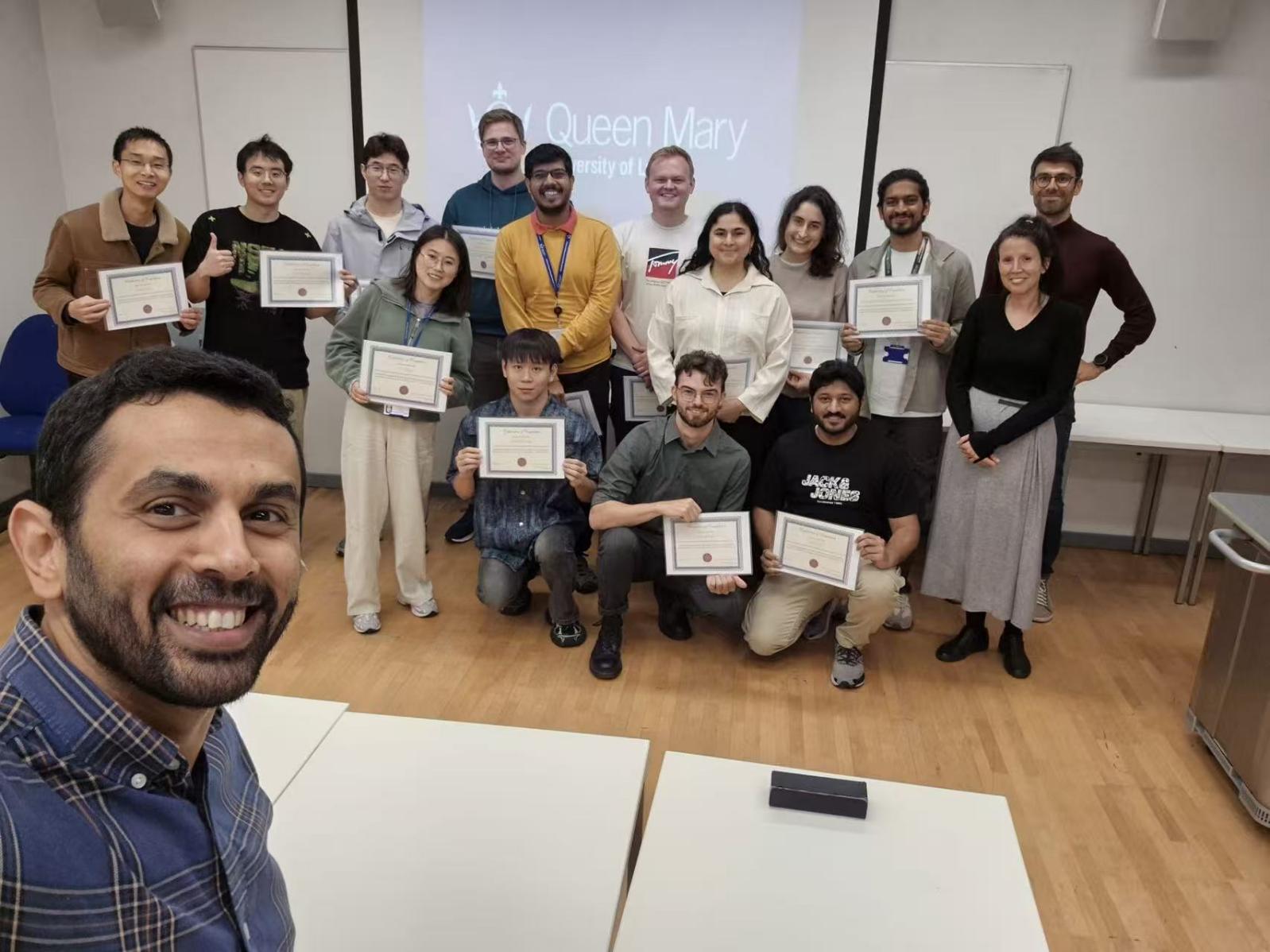
- TC-11 is co-organizing a Special Session “Advances in Antennas and Sensors for Health and Medical Applications” at the IEEE Microwaves, Antennas, and Propagation Conference (MAPCON 2025), Kochi, Kerala, India.
- January, 2026
- IEEE AP-S/URSI 2026 Special Session: “Transforming Future Healthcare through Biomedical and Bio-electromagnetic Technologies” from TC11 has been accepted for inclusion in the program of 2026 IEEE International Symposium on Antennas & Propagation and USNC-URSI Radio Science Meeting (12-17 July 2026, Detroit, Michigan, USA). Also, Professor Ifana Mahbub and Sima Noghanian are inviting paper submissions to the USNC-URSI Commission K special session (Joint AP/URSI session): "Metasurface Antennas for Biomedical Sensing, On-Body Communication, and Wireless Power Transfer (Joint AP-S/URSI)" The submission site is open, and the submission deadline is January 23, 2026. Please visit: https://2026.apsursi.org/special_sessions.php.
- Dr. Anja Skrivervik and Dr. Sema Dumanli Oktar will be teaching a short course at EuCAP2026 dedicated to the fascinating area: #SC08 - Antennas for In-Body Sensing: Design Principles, Measurement Techniques, and Open Challenges. Date: Sunday, April 19, 2026. Location: EuCAP2026, Dublin. Please visit: here
Members – TC on Imaging, Sensing, Medicine, Health, Services

Qammer H. Abbasi
University of Glasgow, Scotland
Chair

Akram Alomainy
Queen Mary University of London, England
Vice-Chair

Asimina Kiourti
OSU, USA

Denys Nikolayev
CNRS, France

Erdem Topsakal
VCU, USA

Wenxuan Tang
Southeastern university, China

John Ho
NUS, Singapore

Ifana Mahbub
The University of Texas at Dallas, USA

Maxim Zhadobov
IETR/CNRS, France

Sema Dumanli
Bogazici University, Turkey

Hendrik Rogier
UGent-imec, Belgium

Sima Noghanian
CommScope Ruckus Networks, USA
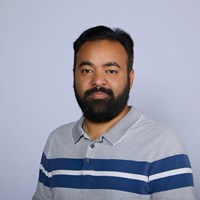
Muhammad Zubair
Leicester University, UK
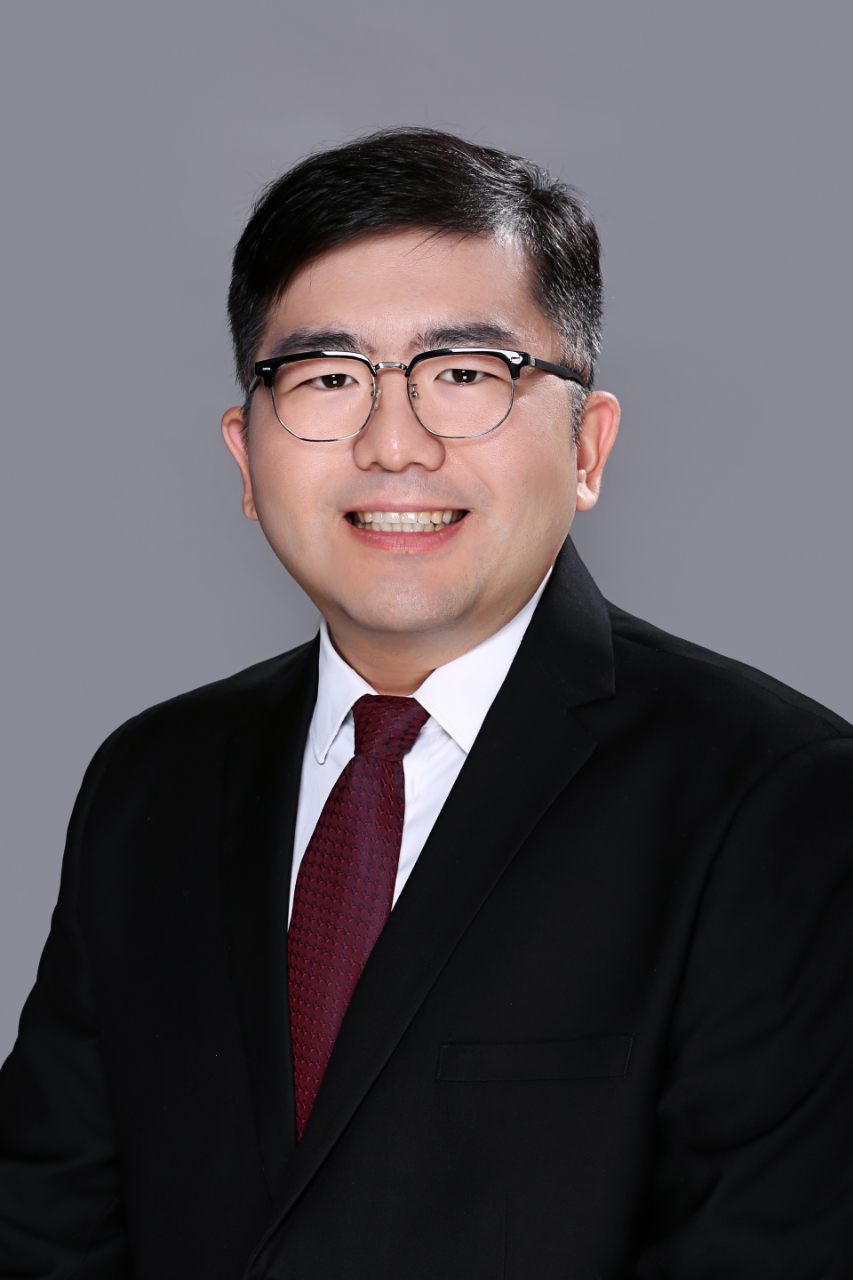
Wei E.I. Sha
Zhejiang University, China
Biographies

Qammer H. Abbasi (SMIEEE, FRET, FRSA, FEAI, FIET, FRSE), Professor of Applied Electromagnetics & Sensing with the James Watt School (JWS) of Engineering, Theme lead for Connecting People priority at JWS, Director for Communication Sensing and Imaging (CSI) Hub, UK Government’s Policy Advisor in Department for Science Innovation & Technology and The Scottish Science Advisory Council Member. He has grant portfolio of £13M+ and contributed to more than 500+ leading international technical journal (including nature portfolio) and peer reviewed conference papers, 11 books and received several recognitions for his research including UK exceptional talent endorsement by Royal Academy of Engineering, Sensor 2021 Young Scientist Award, University level Teaching excellence award in addition to coverage by various media houses globally, BBC news, Scotland TV, Fiercewireless, the Engineers and many other media houses. Prof. Abbasi is an IEEE senior member and is chair of IEEE APS/MTT UK, Ireland and Scotland joint chapter. He is an Associate editor for IEEE Sensors, IEEE open journal of Antenna and Propagation, IEEE JBHI and scientific reports. He is IEEE APS distinguished lecturer (2024-26), Chair of IEEE APS Young professional committee, committee member for IEEE 1906.1.1 standard on nano communication, IEEE APS/SC WG P145, IET Antenna & Propagation and healthcare network. He is/was Fellow of Royal Society of Arts, industrial Fellow of Royal Academy of Engineering (2022-23), Fellow of Institution of Engineering & Technology, Fellow of European Alliance of innovation and Fellow of Royal Society of Edinburgh.

Professor Akram Alomainy is an internationally recognised researcher, educator, and leader in antennas, electromagnetics, and wireless systems. He is Deputy Dean for Postgraduate Research in the Faculty of Science and Engineering at Queen Mary University of London (QMUL), Lead of the Centre for Electronics, and Head of the Antennas and Electromagnetics Research Group. Professor Alomainy’s pioneering research spans wearable and body-centric wireless communications, 5G/6G systems, advanced sensing, and applications for healthcare, security, and space. His interdisciplinary collaborations bridge engineering, medicine, and industry, producing transformative technologies with global impact. He has authored over 500 peer-reviewed publications, attracting more than 14,000 citations with an H-index of 56, and has secured over £12 million in research funding from UKRI, industry partners, and international agencies. A passionate advocate for research culture, innovation, and equality, diversity and inclusion, Professor Alomainy champions a supportive environment for postgraduate researchers and early-career academics. He has led numerous high-profile projects, delivered keynote talks at international conferences, and engaged widely with media to promote the societal benefits of engineering. His contributions have been recognised with multiple awards for research excellence, teaching innovation, and public engagement. These include the Isambard Kingdom Brunel Award, Qatar Foundation Research Representation Award, QMUL Research (2021) and Teaching (2019) excellence awards. Dedicated to inspiring the next generation, he continues to mentor emerging talent while driving forward cutting-edge research that shapes the future of communication and sensing technologies.

Asimina Kiourti is an Innovation Scholar Endowed Associate Professor of Electrical and Computer Engineering at The Ohio State University, where she first joined as a faculty member in 2016. From 2013 to 2016 she served as a Post-Doctoral Researcher and then a Senior Research Associate at Ohio State’s ElectroScience Laboratory. Prior to that, she received the Ph.D. degree in Electrical and Computer Engineering from the National Technical University of Athens, Greece (2013) and the M.Sc. degree from University College London, UK (2009). Her research interests lie in bio-electromagnetics, wearable and implantable antennas, and sensors for body area applications. Her publication record includes 1 book, 12 book chapters, 10 awarded patents, over 85 journal papers, and over 150 conference papers and abstracts. Her work has been funded by NSF, NIH, NASA, DoD, and more, and has been recognized with over 40 scholarly recognitions, including the 2023 IEEE Lot Shafai Mid-Career Distinguished Achievement Award, 2022 Ohio State Early Career Distinguished Scholar Award, 2021 NSF CAREER award, and 2021 ’40 Under 40′ recognition by Columbus Business First. Her mentees have received another 50 awards at an international, national, and local level. Her research contributions have been featured by TechCrunch, the Times of India, and Australia Network News, among others. Prof. Kiourti is a Senior Editor for the IEEE Transactions on Antennas and Propagation and Editor of the IEEE Antennas and Propagation Magazine “Bioelectromagnetics” column. She also serves in several elected and appointed roles in IEEE, USNC-URSI, and ACES.

Denys Nikolayev received his M.Sc. in applied electromagnetics (summa cum laude) from Lviv Polytechnic National University, Ukraine, and dual Ph.D.s from CNRS/IETR (France) and the University of West Bohemia (Czechia). He was a Postdoctoral Fellow at imec/Ghent University and a Scientist at EPFL before joining CNRS as a Senior Scientist. His expertise covers wireless powering, RF circuits, metasurfaces, and wave control in complex media for implantable, ingestible, and wearable bioelectronics. He has received the ERC Starting Grant (2024), the ANR–NRF PRCI Fellowship, and the Fondation Rennes 1 Best Ph.D. Dissertation Award. Since 2022, he has been an elected member of Section 10 of the French National Committee for Scientific Research.

Erdem Topsakal is Senior Associate Dean for Strategic Initiatives and Enrollment Professor, Department of Electrical and Computer Engineering at Virginia Commonwealth University. His area of research has a focus on medical applications for applied electromagnetics, and includes microwave early cancer detection and monitoring, microwave hyperthermia and ablation, wireless medical telemetry and e-health, medical applications of microfluidics, novel microwave antennas and arrays, research thrusts in military simulation software, antenna and radar design, and applications of computational electromagnetics.
Topsakal has held positions such as chair of the Mississippi Academy of Sciences and chair of the U.S. National Committee International Union for Radio Science Commission K. He has received research grant funding totaling more than $9 million and has given more than 20 invited talks at institutions around the world.
Topsakal received his B.S., M.S., and Ph.D., all in electrical and communications engineering, from Istanbul Technical University, Istanbul. He completed Harvard University’s management development program in 2016.

Wenxuan Tang received her BSc and MSc degrees from Southeast University, Nanjing, China, and her PhD in electromagnetics from Queen Mary University of London. In 2012, she joined the School of Information Science and Engineering in Southeast University, where she is currently a Professor with the State Key Laboratory of Millimeter Waves. She is a senior member of the Chinese Institute of Electronics (CIE), and a committee member of the CIE Radio Propagation Society. She is currently the associate editor of Antennas and Wireless Propagation Letters and EPJ Applied Metamaterials. She has co-authored 100+ papers and one book. Her research interest focuses on the metamaterials and their applications at microwave frequencies.

John S. Ho is an associate professor in the Department of Electrical and Computer Engineering at the National University of Singapore. He received his PhD in electrical engineering at Stanford University where he developed wireless power transfer technology now in clinical use. He is a recipient of the NRF Fellowship and the Young Scientist Award, and has appeared on the MIT TR35 Innovator Under 35 Asia and Forbes 30 Under 30 Asia lists. He is currently on leave from NUS at Meta Reality Labs in California working on sensor systems and algorithms to digitally capture human behavior.

Dr. Ifana Mahbub is an Associate Professor and the Texas Instruments Early Career Chair Awardee in the Department of Electrical and Computer Engineering at the University of Texas at Dallas, where she leads the Integrated Biomedical, RF Circuits and Systems Laboratory (iBioRFCASL). Her research spans wireless power transfer for implantable and wearable biomedical devices, IoT systems, UAVs, and long-range power beaming using microwave and millimeter-wave technologies. She is particularly focused on developing scalable, efficient, and safe wireless energy delivery systems that enable untethered operation in dynamic or infrastructure-limited environments.
Dr. Mahbub received her B.Sc. degree (2012) in Electrical and Electronic Engineering from the Bangladesh University of Engineering and Technology, and her Ph.D. degree (2017) in Electrical Engineering from the University of Tennessee, Knoxville. She is the recipient of several prestigious honors, including the NSF CAREER Award (2020), DARPA Young Faculty Award (2021), and the DARPA Director’s Fellowship (2023).
She currently serves as Vice-Chair for the USNC-URSI Commission K and as an Associate Editor for the IEEE Transactions on Antennas and Propagation. She is also a full member of the IEEE MTT-S Technical Committee 25 (Wireless Power Transfer and Energy Conversion) and the IEEE APS Technical Committee on Health and Medicine.

Maxim Zhadobov is a Senior Research Scientist with the IETR/CNRS. His research interests include innovative biomedical applications of electromagnetic fields and associated technologies. He has coauthored five book chapters, > 100 research papers in peer-reviewed international journals, and > 200 contributions to conferences and workshops. He is a member of Board of Directors of international BioEM society and a member of IEEE TC95.4. He was an elected member of EBEA Council from 2017 to 2021 and President of URSI France Commission K till 2025. He is an Associate Editor for IEEE Journal of Electromagnetics, RF and Microwaves in Medicine and Biology and served as Guest Editor of several special issues, including Human Exposure in 5G and 6G Scenarios of Applied Sciences and Advanced Electromagnetic Biosensors for Medical, Environmental and Industrial Applications of Sensors. He has been involved in 31 research projects (16 as PI). Dr. Zhadobov was a TPC member and/or session organizer at international conferences, including IEEE AP-S/URSI 2024, URSI AT-RASC 2024, AES 2023, BioEM 2023, EUMW2022, IEEE IMBioC 2022, AT-AP-RASC 2022, BioEM 2019, EuMW 2019, IEEE iWEM 2017, MobiHealth 2015–2017, BodyNets 2016, and IMWS-Bio 2014. He was the TPC co-Chair of BioEM 2021/2020 and member of LOC of BioEM 2025. He also served on review boards of more than 15 international journals and conferences, and has been acting as an expert at research councils worldwide. He received Research & Innovation BPGO Award in 2022, CNRS Bronze Medal in 2018, EBEA Award for Excellence in Bioelectromagnetics in 2015.

Sema Dumanli received the B.Sc. degree in electrical and electronic engineering from Orta Dogu Teknik Universitesi, Ankara, Turkey, in 2006, and the Ph.D. degree from the University of Bristol, Bristol, U.K., in 2010.
She was with Toshiba Research Europe, Bristol, as a Research Engineer and a Senior Research Engineer from 2010 to 2017. She is currently an Associate Professor at Bogazici University, Istanbul. She is the founder and the director of Antennas and Propagation Research Laboratory (BOUNtenna) and Bioelectromagnetics Laboratory (AntennAlive). Her current research interests include antenna design for implantable and wearable devices, in-body sensor design, chipless RF-ID, biohybrid implants and multi-scale communications.
She is the recipient of Science Academy’s Young Scientist Award (BAGEP) 2025, the IEEE APS Donald G. Dudley Jr. Undergraduate Teaching Award 2022, and three times recipient of “Boğaziçi University, Faculty of Engineering’s Excellence in Teaching Award”. She currently serves as the chair of IEEE APS/MTT/EMC/ED Turkey Joint Chapter and the vice chair of IEEE APS Young Professionals Committee. She also is a board member and the secretary of URSI Turkey and the chair of URSI Turkey Commission K.

Hendrik Rogier received the M.Sc. and Ph.D. degrees in electrical engineering from Ghent University, Ghent, Belgium, in 1994 and 1999, respectively. From 2003 to 2004, he was a Visiting Scientist with the Mobile Communications Group, Vienna University of Technology, Vienna, Austria. He is currently a Senior Full Professor with the Department of Information Technology, Ghent University and a Guest Professor with the Interuniversity Microelectronics Centre, Ghent. He has authored or co-authored over 215 papers in international journals and over 250 contributions in conference proceedings. His current research interests include antenna systems, radio wave propagation, body-centric communication, numerical electromagnetics, electromagnetic compatibility, and power/signal integrity.
Dr. Rogier is a member of the MTT TC-26 RFID, Wireless Sensor and IoT Committee, of AP-S TC-11 Health & Medicine, and he acts as the URSI Commission B representative for Belgium. He was a recipient of the URSI Young Scientist Award (twice) at the 2001 URSI Symposium on Electromagnetic Theory and at the 2002 URSI General Assembly, and a co-recipient of the 2014 Premium Award for Best Paper in the IET Electronics Letters, the Best Paper Award First Place in the 2016 IEEE MTT-S Topical Conference on Wireless Sensors and Sensor Networks, the Best Poster Paper Award at the 2012 IEEE Electrical Design of Advanced Packaging and Systems Symposium, the Best Paper Award at the 2013 IEEE Workshop on Signal and Power Integrity, the Joseph Morrissey Memorial Award for the First Best Scientific Paper at BioEM 2013, the Article of the Year 2022 in Journal of Sensors Award, 2023 IEEE AP -S Tapan K. Sarkar Best IEEE CAMA Student Paper Award, the 2024 IEEE FLEPS 2nd place Student Best Paper Award, and the IEEE Journal of Microwaves 2023 Best Paper Award. From 2017 until 2019, he was an Associate Editor of IEEE Transactions on Microwave Theory and Techniques. Currently, he is an Associate Editor of IET Electronics Letters and of IET Microwaves, Antennas and Propagation.

Sima Noghanian received the Ph.D. degree from the University of Manitoba in 2001. She is a Distinguished Antenna Design Engineer with CommScope Ruckus Networks. She is also an Antenna/RF Consultant with Neuspera Medical Inc. and StrokesDX. She was a recipient of a Natural Sciences and Engineering Research Council of Canada Postdoctoral Fellowship, which she took it at the University of Waterloo. She served as an Electrical Engineering Faculty with the Sharif University of Technology, Iran, in 2002, the University of Manitoba, Canada, from 2003 to 2008, and the University of North Dakota, USA, from 2008 to 2018, where she also served as the Chair with the Electrical Engineering Department from 2014 to 2016. She was an Electromagnetic Application Engineer with PADT Inc. from 2019 to 2020 and a Principal Antenna Design Engineer with Wafer LLC from 2020 to 2021. She is the author of one book, seven book chapters, five patents, and more than 250 journal and conference papers. Her research interests include wearable and implanted antennas, 3-D printed and flexible antennas, wireless power transfer for medical implants, biomedical microwave imaging, MIMO antennas, and MIMO channel measurement and modeling. She currently serves as an Associate Editor for IEEE TRANSACTIONS ON ANTENNAS AND PROPAGATION, IEEE OPEN JOURNAL OF ANTENNAS AND PROPAGATION, IEEE Antennas and Propagation Magazine, IET Microwave, Antennas and Propagation, AEÜ International Journal of Electronics and Communications, and Frontiers in Antennas and Propagation. She was an Associate Editor of IEEE ANTENNAS AND WIRELESS PROPAGATION LETTERS from 2017 to 2022. She was a Guest Editor of MDPI Sensors (Wearable Antennas, 2020), MDPI Micromachines (5G and mm-Wave Array Antennas, 2023, and Research and Development in North America, 2024), and IEEE OPEN JOURNAL OF ANTENNAS AND PROPAGATION (Spotlight on Women’s Research in Antennas and Propagation, 2021). She is an elected Member of the IEEE Antennas and Propagation Society Administration Committee from 2023 to 2025. She is a Distinguished Lecturer of the Antennas and Propagation Society from 2024 to 2026. She is currently the Chair of the IEEE AP Society Technical Committee on Antenna Measurements. She is a Fellow of the Applied Computational Electromagnetics Society (ACES), a Senior Member of URSI Commissions B and K, the Current Chair of USNC-URSI Commission K, and the Membership and Communication Chair of ACES.

Muhammad Zubair (SFHEA, SMIEEE, SMOptica) received his PhD in Electronics and Communication Engineering from Politecnico di Torino, Italy, followed by postdoctoral research at the SUTD-MIT International Design Centre, Singapore. Before joining Leicester, he held academic and research appointments at the James Watt School of Engineering, University of Glasgow; King Abdullah University of Science and Technology (KAUST); Information Technology University (ITU), Lahore; and the Singapore University of Technology and Design (SUTD). Dr. Zubair’s research interests span applied electromagnetics and metasurfaces, with a focus on developing next-generation models, materials, and devices for future communication, sensing, imaging, and energy applications. He has contributed as PI/ Co-PI or researcher co-lead in projects funded by several international agencies, including the EPSRC (UK), Qatar National Research Fund (QNRF), HEC (Pak), PHEC (Pak), Singapore Temasek Labs, and the US Department of Defense (DoD). He has published over 200 peer-reviewed articles, co-authored two book chapters/monographs, and has been listed among the top 2% most-cited researchers worldwide by Stanford-Elsevier since 2021. His contributions have been recognized with several awards, including the URSI Young Scientist Award, Punjab Innovation Research Challenge Award, IEEE Education (ETOP 2025) Change Champion, and the RSC Emerging Investigator 2024/2025 distinction. He is a Senior Fellow of the Higher Education Academy, Senior Member IEEE, Senior Member Optica, IEEE AP-S Young Professionals Ambassador 2025, Queen Elizabeth Prize for Engineering (QEPrize) Ambassador 2025, and an active member of IET, ACES, and SPIE. He currently serves or has served as an Associate Editor for IEEE Access, PLOS ONE, Wiley International Journal of Antennas and Propagation, and IET Microwaves, Antennas & Propagation.

Wei E.I. Sha (Fellow, IEEE) received the Ph.D. degree in Electromagnetic Fields and Microwave Technology from Anhui University, Hefei, China, in 2008. From 2008 to 2017, he served as a Postdoctoral Research Fellow and later as a Research Assistant Professor in the Department of Electrical and Electronic Engineering at the University of Hong Kong. Subsequently, he held a Marie Skłodowska-Curie Individual Fellowship at University College London, U.K., from 2018 to 2019. He is currently a Tenured Associate Professor with the College of Information Science and Electronic Engineering, Zhejiang University, Hangzhou, China. Dr. Sha's research interests lie in theoretical and applied electromagnetics, with a focus on computational electromagnetics, quantum electromagnetics, and electromagnetic information. He has authored or co-authored two books, 10 book chapters, over 220 peer-reviewed journal articles, and 200 conference papers. His works have been cited over 13,164 times on Google Scholar, resulting in an h-index of 60. He served as an Associate Editor for the IEEE Journal on Multiscale and Multiphysics Computational Techniques, the IEEE Open Journal of Antennas and Propagation, and Electromagnetic Science. Dr. Sha is a National Distinguished Young Scholar and a recipient of the 2022 ACES Technical Achievement Award, the Second Prize of Science and Technology Award of the China Institute of Communications, the Second Prize for Science and Technology from the Anhui Provincial Government, and 11 international conference paper awards.

